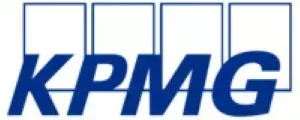Welcome to the first edition of the 2020 KPMG Malta Shipping Newsletter.
This issue will constitute a bridge edition focusing on 2019 achievements which will hopefully lead to new opportunities throughout the new year and decade. The most salient points of this Newsletter will revolve around key regulatory and tax aspects which will influence the Shipping and Yachting Industry throughout 2020.
We hope you will find this interesting and useful. Should you wish to discuss further any of the below points please feel free to reach out to our team members Stephan Piazza or Francesca Ferrando.
IMO 2020 – From a Strategy Outline to Implementation and Enforcement
IMO 2020 remains a hot topic amongst shipping industry practitioners. While compliance started prior to the entry into force, either through the installation of scrubbers, the clean-up of tanks in order to remove any trace of non-compliant fuels, or through greener fleet acquisition planning. However, given this year's entry into force of the IMO 2020 regulations, inevitably a shift of focus is expected. Whereas during the last few years, shipowners' attention was directed towards the strategy to be adopted (scrubber yes / scrubber no / open or closed loop / low sulphur fuel yes or no) with headaches for engineers, CFOs analysing costs and benefits, this year will see a focus on implementation and enforcement. It will be quite interesting to understand whether decisions adopted a few years ago will prove to be the most effective and the degree of strictness adopted by different port authorities across the world in assessing compliance to new rules.
Transport Malta Regional Office in Athens
2019 marked the opening of a new Transport Malta regional office in Athens. The Authority for Transport in Malta, in line with several other flag administrations in the world, decided to pursue such expansion in order to be closer to the needs of the largest shipping community in mainland Europe. Malta is the third flag of choice of the Greek market: setting up an office there was a natural choice. Said decision was welcomed with great satisfaction by both the Maltese and Greek community. We augur the best success to the Athens office and are hopeful this model will be replicated in other major maritime hubs.
Digitalisation of the Malta Maritime Authority
The Maltese flag administration has embarked on a digitisation process aimed at rendering the interaction with the authority responsible for transport a smoother and more efficient one. Transport Malta was in fact awarded an EUR 250,000 grant by the European Union in order to digitalise all matters concerning ship registration.
In addition to this Transport Malta has signed a contract with a Slovenian IT firm, for the development of a new National Maritime Single Window. The new web-based portal will improve the interface and facilitate reporting and communication among local maritime stakeholders, including Government agencies, ship operators, ship agents, service providers and terminals.
A Growing Flag
2019 was another successful year for the Maltese flag bringing it to more than 8,000 ships and 800 superyachts in its books and a significant 82+ Million Gross Tonnage. Although the Maltese flag is currently positioned as the 6th flag in the world and 1st in Europe the aim is to enter the top 5 world chart. We would like to hear from you on how you think ambition may be achieved.
Malta re-elected on IMO Council
During 31st session of IMO General Assembly Malta has been re-elected on the Council (Category C) of the International Maritime Organisation receiving the most votes (145) after Singapore (152). Malta has been a member of the IMO since 1966.
Foreign Affairs and Trade Promotion Minister, Carmelo Abela, commented this achievement by saying: "We feel a responsibility of being active in IMO, and therefore we seek to be elected in this category which focuses mostly on transport and navigation so that, apart from our maritime flag responsibility, we give our contribution in the international maritime sector".
Minister Abela further added that "Malta continued to consolidate its active commitment in maritime affairs and it is a vote of confidence in Malta and to the work in the maritime sector".
The IMO assembly was also addressed by Transport Minister, Ian Borg, who said that the Maltese Government is committed in continuing with Malta's participation in the Council to strengthen safety and efficiency in the sea transport sector. As a tangible sign of Malta's commitment, Malta offered a financial contribution to the organisation's fund for technical training to developing countries in order to improve their maritime capacities.
Arrest of vessels in Malta – Towards a more efficient process
Over the years, Malta has built a strong reputation as one of the most efficient and creditor-friendly jurisdiction during the pre-enforcement, enforcement and post-enforcement stage. The Maltese lawmaker has recently amended the relevant provisions of the Code of Organization and Civil Procedure relating to the arrest of ships by introducing a new mechanism for the service of arrest warrants. This legislative development provides, in particular, for the servicing of arrest warrants also by third parties (not just Court Marshalls) duly authorised by the Court.
Tonnage Tax
If 2018 witnessed the rolling out of the new tonnage tax rules (following EU's approval in late 2017), 2019 was the year shipping companies and practitioners started adapting to the new compliance rules.
In 2019 a number of tonnage tax measures were also approved by the European Commission. During the course of 2020, important shipping nations such as Denmark and Cyprus will need to approve new rules reflecting this development at EU level.
KPMG Malta will be following closely developments in other jurisdiction in order to be in a better position to advise its clients on the best solutions to adopt.
Yachting
2019 was a particularly intense year for the yachting industry, in particular for those tax practitioners having an active VAT compliance involvement. Back in 2018, Malta was forced to suspend its guidelines on the long-term chartering of yachts following pressures from European levels. One of the main points contested revolved around the interpretation of the use and enjoyment principle outside the EU based on Article 59A of the VAT Directive. As a result Malta has introduced new rules which are currently being discussed with EU authorities. Jurisdictions like Italy and Cyprus which adopted similar rules to Malta were also being debated within the net of the European Union. Italy was subject to infringement procedures with respect to short-term chartering of yachts thus implying that long-term chartering of yachts based on pre-determined rates are now acceptable to the EU. If this is the case Malta might be in a position to re-introduce the rules scrapped in 2018, or an updated version thereof.
The EU needs clear and basic principles guiding Member states in the highly complex application of the VAT Directive. We augur to receive this during the course of 2020 so to put to an end to this uncertainty and witness a prosperous year for the yachting industry.
Brexit
Brexit represents another big uncertainty within the industry on different fronts, most notably the VAT status of yachts previously imported through the UK, certification of seafarers, freedom of navigation within the EU. The recent 12 December elections seem to have brought some certainty as to the way forward. As Brexit happens, our role will be that of monitoring and assessing possible repercussions on the yachting industry of any deal achieved in this regard between the EU and the UK.
The content of this article is intended to provide a general guide to the subject matter. Specialist advice should be sought about your specific circumstances.

